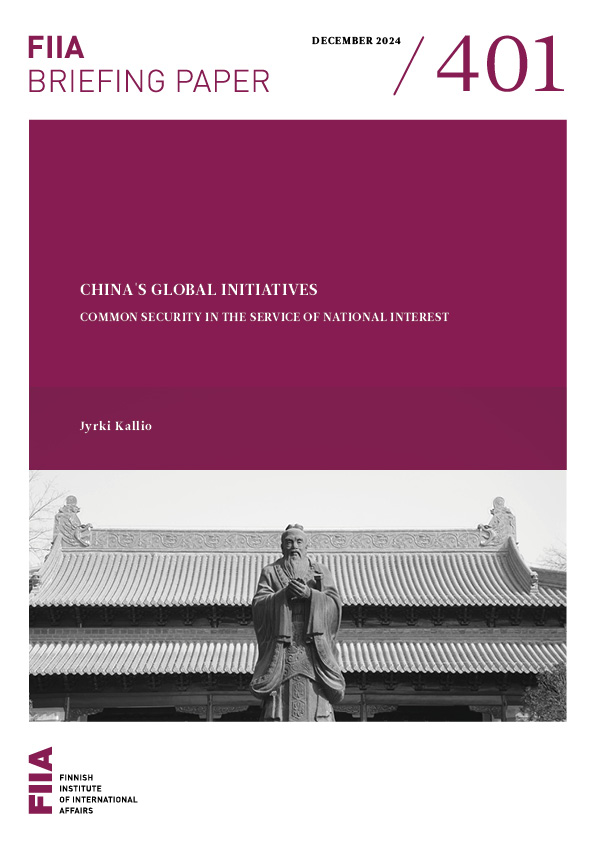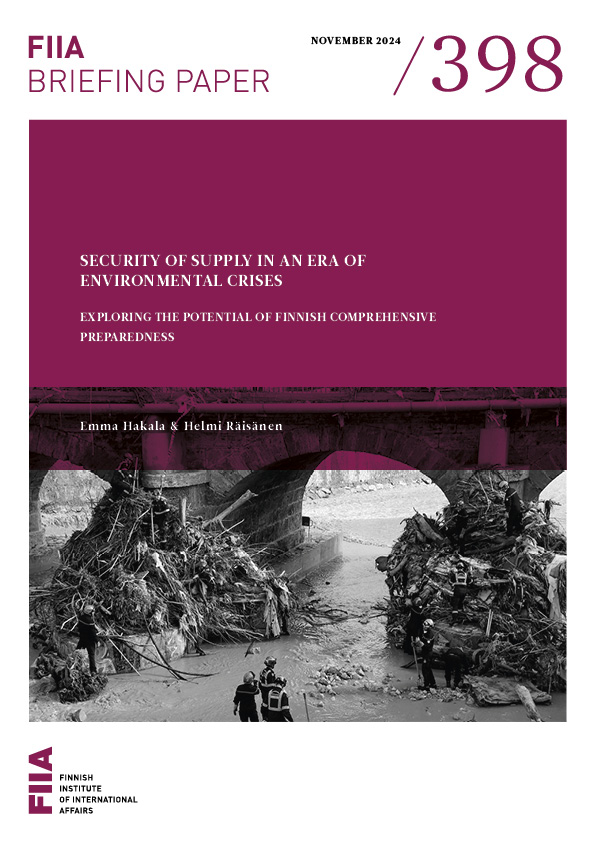European leaders’ call for China to invest in complicated financial constructions during the eurozone crisis is symptomatic of recurring themes in EU-China relations: EU leaders repeatedly send mixed messages, simultaneously appearing both condescending and weak, while failing to understand China’s motivations.
European leaders’ call for China to invest in complicated financial constructions during the eurozone crisis is symptomatic of recurring themes in EU-China relations: EU leaders repeatedly send mixed messages, simultaneously appearing both condescending and weak, while failing to understand China’s motivations.
Desperate times call for desperate measures. Still, the public announcement that European leaders were reaching out to China and other monied non-European countries to fund the quadrupling of the European Financial Stability Facility (EFSF), without putting more money on the table themselves, was poorly thought-out, uninformed and ill-timed.
Potentially, China could certainly provide concrete assistance to Europe, beyond rhetorical support. China can buy bonds directly in the affected countries, or the bonds issued by the EFSF; it can participate in IMF capital-raising to channel financing to struggling eurozone economies; or it can invest in the EFSF special purpose investment vehicle announced after the 26–27 October EU summit. It was the last one in particular, whose name was later changed to co-investment fund (CIF), that the French President Nicolas Sarkozy invited China to contribute to.
While China undoubtedly has a vested interest in the stability of the global economy and in European demand for its exports holding up – the EU being China’s biggest export market – the eurozone is not China’s to save. Chinese leaders are loath to prop up ‘rich’ Europe, an unpopular proposition with a domestic audience that increasingly constrains Chinese leaders’ freedom of maneouvre.
With its US$3.2 trillion currency reserves, China has been caught up in an investment bind without many options for where to park its money. Euro-investments offer one of the few alternatives to dollar-investments. Nonetheless, like any large investor, China has reasonable concerns with regard to investment security and returns. The country has bad experiences of investing in Western financial firms just ahead of the global financial crisis in 2008, not to mention the poor market performance of the first EFSF-emitted bonds.
The structure and mechanism of the proposed CIF is as yet so uncertain that external investors are understandably cautious. The proposed leveraging of the EFSF by offering a first-loss guarantee of 20% on the investment (backed by eurozone governments), reeks of a subprime-like financial ‘innovation’. It also essentially turns the whole investment structure into a confidence game: does China trust in the eurozone governments’ ability and political will to stand by their commitment, even if it means taking losses of tens of billions of euros on the loans of other sovereigns?
Many Europeans misread the signals of Chinese leaders on how they see China’s role in the eurozone crisis, or rather that they preferred not having much of a role in it at all. Desperate-sounding pleas for Chinese funding needlessly hands China a position of negotiating strength, a psychological edge, that Beijing will be happy to capitalize on in the coming months.
The EU even managed to inadvertently slight the Chinese by postponing the EU-China summit in Tianjin at the last minute because of the most recent eurozone crisis summit. Many European leaders probably did not even consider how the request for massive funding would look from Beijing’s perspective, right after a postponed summit.
Unfortunately, such sequences of events have become quite commonplace in EU-China relations. The EU often sends contradictory signals to China, appearing both inflexible and unreceptive to Chinese concerns, while repeatedly professing to be just the opposite. Yet, it maintains too high expectations of what China can and should do.
Last year’s EU-China summit in Brussels is commonly perceived as a failure. Beijing expected that the time might be ripe for a more positive European attitude towards Chinese concerns, from granting market economy status to lifting the arms embargo. Such flexibility had apparently been signalled by some EU member states. European Council President Herman Van Rompuy had also called for a new emphasis on strategic partnerships with China and other major countries.
Instead, the Chinese Premier Wen Jiabao was confronted at the summit by a barrage of criticism, ranging from the Chinese currency’s valuation to the red tape confronting European companies in China. The summit ended with disagreement on a broad range of issues and the cancellation of the scheduled joint press conference.
This year, the EU intended to do its homework better, spending more time preparing and coordinating positions internally, as well as communicating adequately with China in advance. But then the EU-China summit was overtaken by the eurocrisis juggernaut.
The failures of the EU to effectively pursue its ‘strategic partnership’ with China, despite all the talk of putting more effort into the EU’s partnerships with the BRICS countries, is making China rather bemused with the whole relationship. The poorly-planned choreography of the EFSF funding request does not make the EU a very convincing partner. Unsurprisingly, the recent G20 summit in Cannes dashed high hopes of increased BRICS financial support for the eurozone. The EU’s difficulties in developing a well-working foreign policy towards the BRICS-countries is dealt with extensively in a forthcoming European Parliament study, co-drafted by FIIA researchers.
Reaching out to China for help amid the eurozone crisis seems to have been taken on a whim, almost as an afterthought. Had the EU really wanted to maximize its chances of receiving Chinese funding, it would have coordinated this very closely with Beijing before going public with it. It could even have been announced in conjunction with the EU-China summit. Before the EU starts taking China more seriously, there is little prospect of China taking the EU more seriously.








